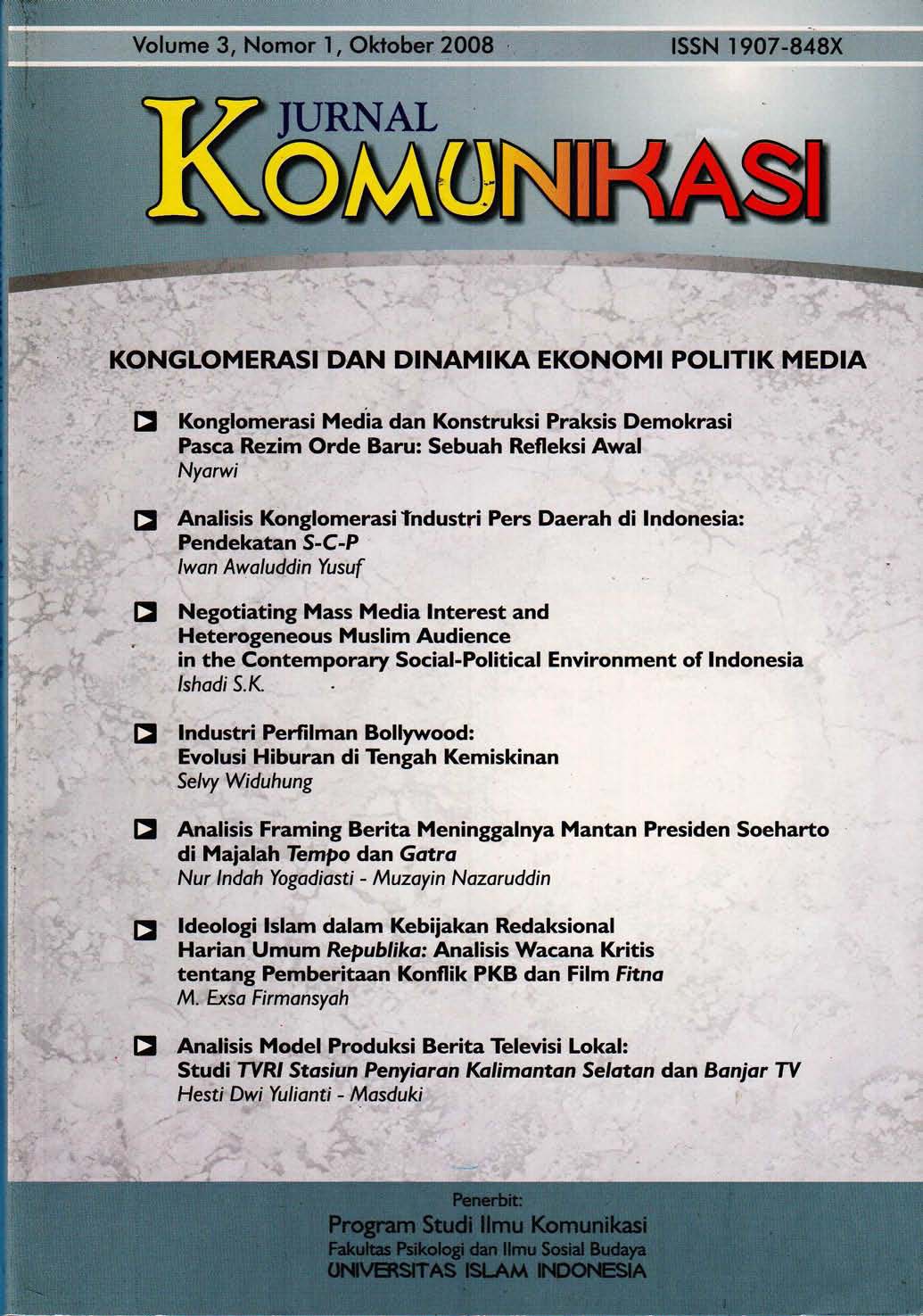Main Article Content
Abstract
Sejarah industri radio dan televisi Indonesia dapat dibagi dalam tiga era kekuasaan otoritatif. (l) Era Monopoli Pemerintah 1962-1990. (2) Era Quasi- monopolistik: pemerintah memberi izin lima pemilik stasiun televisi baru (RCTI, SCTV, TPI, Anteve dan Indosiar), dan (3) Era Persaingan Bebas-pasca reformasi 1998. Setelahjatuhnyapresiden Soeharto danpelantikanpemerintahan yang baru di bawah BJ. Habibie, pemerintah melepaskan kontrol atas media, termasuk televisi. Kontrol sekarang ditentukan kekuatan pasar. Mencakup ketiga era seluruhnya, orang muslim Indonesia, yang merupakan populasi mayoritas (90% dari total populasi), tidak pemah disediakan peluang proporsional program siaran bertema Islam. Satu-satunya masa kemenangan Islam atas kepentingan media adalah sepanjang bulan sudRamadhan, ketika semua muslim wajibpuasa dan taat beribadah, televisi didominasi program bertema Islam. Sepanjang Ramadhan, program yang berkarakter Islam mendominasi layar televisi dan siaran radio, termasuk media cetak. Setelah Ramadhan, segalanya kembali berbalik ke bentuk semula. Mengapa Islam gagal memperluas kemenangannya di bulan setelah Ramadhan? Mungkinkah mengendalikan "antusiasme Ramadhan", bahkan setelah bulan suci telah lewat di negara di mana Islam agama mayoritas? Pertanyaan-pertanyaan tersebutdianalisis dalam tulisan ini.
Article Details
License
Authors who publish with this journal agree to the following terms:
- Authors retain copyright and grant the journal right of first publication with the work simultaneously licensed under a Creative Commons Attribution License that allows others to share the work with an acknowledgement of the work's authorship and initial publication in this journal.
- Authors are able to enter into separate, additional contractual arrangements for the non-exclusive distribution of the journal's published version of the work (e.g., post it to an institutional repository or publish it in a book), with an acknowledgement of its initial publication in this journal.
- Authors are permitted and encouraged to post their work online (e.g., in institutional repositories or on their website) prior to and during the submission process, as it can lead to productive exchanges, as well as earlier and greater citation of published work (See The Effect of Open Access).
How to Cite
K., I. S. (2009). Negotiating Mass Media Interest and Heterogeneous Muslim Audience in the Contemporary Social-Political Environment of Indonesia. Jurnal Komunikasi, 3(1), 33–52. Retrieved from https://journal.uii.ac.id/jurnal-komunikasi/article/view/5636
